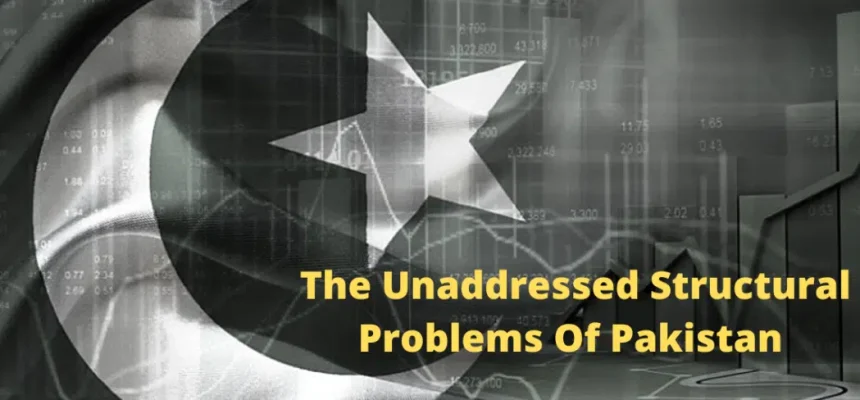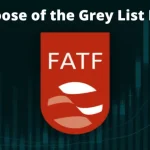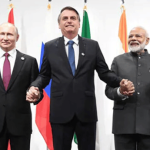The sudden collapse of ex-prime minister Khan’s regime had culminated in a turbulent crisis in Pakistan. At present, the country is facing a grave economic and political crisis under the new prime minister Shahbaz Sharif. Simultaneously, Pakistan is among one the countries facings a severe climate emergency.
In the fiscal year 2021, Pakistan’s economic growth rebounded to 5.6 percent. Amidst the pandemic, the government’s effectually targeted lockdowns to curtail the Covid-19 spread, alongside enabling a sound economic activity to continue resulted in immense economic growth. Mitigating the adverse socio-economic impacts of covid 19 pandemic, through effective micro-level lockdowns, and supportive monetary policies, Pakistan’s economic growth bounced with record high-level remittance inflows – According to World Bank Director for Pakistan.
However, Private investments were at a setback. The import rate remained much higher than exports, leading to a huge trade deficit. In order to sustain economic growth, the present government sped up economic policies by increasing private investments and exports. For the purpose of protecting companies and workers in the home economy, imports of a wide range of non-essential luxury goods have been banned by the Pakistani government. To help overcome the long-term decline in exports as a share of GDP. Addressing core challenges to economic sustainability is obligatory for Pakistan to strive in the global markets.
These core challenges also incorporate the unaddressed structural problems. Those Structural imbalances act as binding constraints to sustainable economic growth and development and lead to unsustainable economic growth. Structural problems such as higher involvement of government in economic activities, policy biases towards import-substituting activities, informal economic strategies, lack of a pragmatic economic approach, negligence of economic services in public policies, negligence towards small/medium businesses, low saving rate, inadequate investments in human resources, poor institutional infrastructures, blind sidedness by the government towards tax revenues, ineffective governance, negligence towards agriculture sector revival as its one of the employer workforce in rural areas are a serious challenge to Pakistan’s economic sustainability.
Also Read: West Centrism in The International Order
From depleting foreign exchange reserves, dwindling foreign capital inflows, low growth economy, inflation at its peak, downsizing and unemployment, declining external balance status, low foreign capital inflows, ponderous debts, and sluggish foreign earnings, all these factors are the outcomes of unaddressed structural problems. If these problems were addressed in a timely manner the economic scenario in contemporary times had been the polar opposite. Unaddressed failure bore more failures. A delayed inclusive approach will only jeopardize the social stability of the society.
Since all these problems are interdependent, what stems from all of these unaddressed issues is political chaos.
Economic Reforms – A Solution?
Addressing interdependent problems bounds complications. Efforts to resolve one problem at a time muddle things in other parts of the state. Economic reforms conducted by different political regimes have always been contradictory to success. May it be homegrown efforts or in accordance with the International Monetary Funds (IMF).

Even so, none of the economic reform efforts conveyed desired results. Be it, a collaboration of both homegrown and IMF efforts. Yet, the adverse effects of these reforms only managed to bring in more problems than any solutions.
Inclusive Approach?
Regardless of failed outcomes, the authorities must not abandon reformational efforts. Reforms can only bring in desired outcomes when continued with an all-inclusive approach that is too persistently. Scrutinizing an evolving democracy like Pakistan’s, an all-inclusive approach is the hour of need.

Amid the political chaos and economic crisis negligence towards economic reforms will only lead to further ado. In all honesty, Pakistan is in no position to afford any delaying tactics – primarily a lack of inclusiveness in policies.
The Structural Problems and What Can Be Done!
A constructive mechanism to synergize a dialogue between government and public sector, emphasizing the absent areas. Barrier identification by public-private dialogue will help identify constraints at the grass-root level. In order to escalate technological innovation, encourage entrepreneurship, and improve competitiveness and efficiency, structural reform is the key.
The disproportionality between the saving rate and investment requirements is evident. The saving rate is below average when related to the investment requirements. Reasons for low private savings are large families, low literacy rate, high inflation, negligence towards saving, negative or low real interest rate, and unstable income. The low saving rate is one of the reasons for the increasing dependence on foreign capital. The unavailability of foreign capital directly links to the depressed investment rate. Complicating growth and employment.
Also Read: THE NATO OF EAST, SCO
The emergence of the energy crisis is mainly due to distribution problems, untargeted subsidies, circular debt, and theft. The immense subsidy is provided by the government in comparison to the price indicated by distribution companies. It is presumed that inflation in electricity prices is directly proportional to oil price inflation rather it has more to do with inefficient power generation with obsolete technology and outdated transmission systems. Demand-side measures shall be initiated in Pakistan in response to such an uncontrolled demand.
National laws and regulations shall be upheld so the informal segments can be tracked down. Tax reforms shall be introduced under a well-planned strategy to tackle given exemptions or withholding tax mainly by the formal sector industries. Enforcement of laws and a proper regulatory system are fundamental.
Structural Reforms – All Inclusive
Introducing structural reforms in the trade sector, business environment, and state-owned enterprises (SOE) will engage higher investments. This will help in restoring fiscal stability along with promoting investor confidence. promoting future economic opportunities and prospects for Pakistan, eliminating unemployment by creating job opportunities, a friendlier business environment will add up.
Diversifying export markets by withdrawing biased export policies will magnify the trade sector. Encouraging international competitiveness of export share in both regional and global markets.







